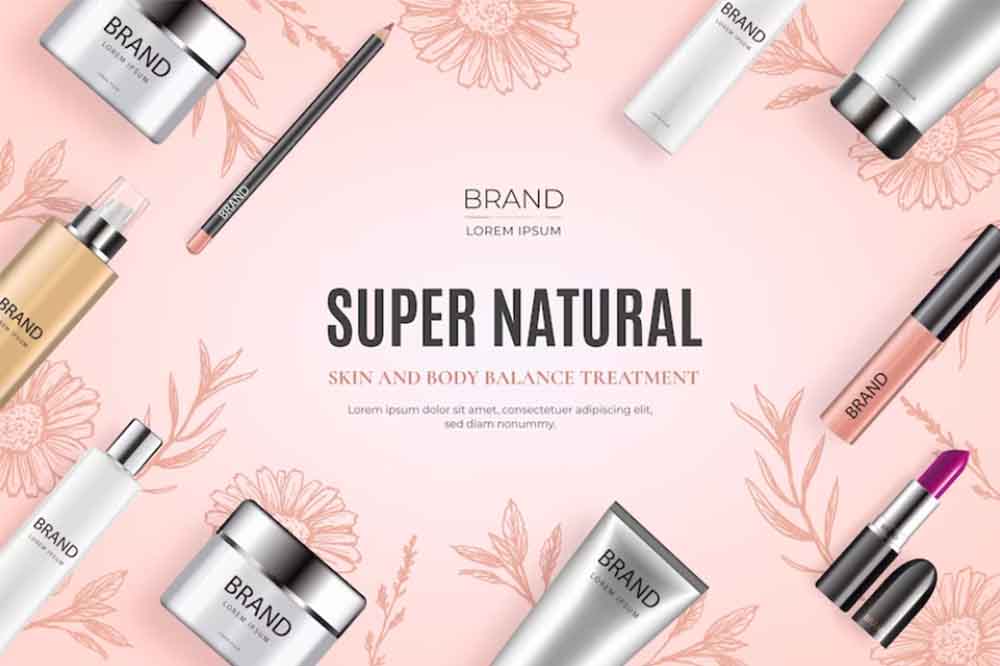
Verify Your Email Address
Please ensure to verify your email for confirmation. We recommend checking your spam and trash folders as well.

The beauty industry is one of the most competitive spaces today, with countless new brands emerging every year. To stand out and succeed, it’s essential to create a strong brand identity that resonates with your target audience. In this comprehensive guide, we’ll walk you through the steps you need to take to brand your own cosmetics effectively, helping you build a powerful and distinctive identity that sets you apart from the competition.
Branding is more than just a logo or a catchy tagline; it’s the entire experience a customer has with your company and products. Your brand identity encompasses everything from your visual elements to the emotions and values that your brand represents. In the cosmetics industry, where customers have an abundance of choices, a memorable and meaningful brand identity is crucial for capturing their attention and fostering loyalty.
In the following sections, we’ll discuss the importance of a strong brand identity for cosmetics, how to define your target market and audience, craft your unique brand story and message, design your brand logo and packaging, develop a consistent brand voice and tone, and implement strategies for building brand awareness and visibility. We’ll also explore how to leverage social media and influencer marketing for your cosmetics brand and how to maintain brand consistency across all marketing channels.
A strong brand identity is critical for success in the cosmetics industry for several reasons. Firstly, it helps you create a lasting impression on potential customers, making it easier for them to remember and recognize your brand in a crowded marketplace. A distinctive brand identity can also evoke positive emotions, build trust, and foster customer loyalty, which is vital for long-term success.
Moreover, a strong brand identity can help you differentiate your products from the competition and communicate your unique selling proposition (USP) more effectively. Customers are more likely to choose your brand if they perceive it as offering something unique, valuable, and relevant to their needs. Finally, a cohesive and consistent brand identity can help you streamline your marketing efforts and build a cohesive brand experience across all touchpoints.
Before you can begin building your brand identity, it’s essential to have a clear understanding of your target market and audience. This will help you create a brand that resonates with the people most likely to purchase your products and become loyal customers. To define your target market, consider the following factors:
Once you have a clear picture of your target market, you can begin crafting a brand identity that appeals to them on a deeper level.
Your brand story and message are crucial components of your overall brand identity, as they help convey the essence of your brand and what sets it apart from the competition. Your brand story should be compelling, authentic, and relatable, while your brand message should clearly communicate your brand’s value proposition and connect with your target audience on an emotional level.
To craft your brand story, consider the following elements:
Once you’ve crafted your brand story and message, ensure they are consistently conveyed across all your marketing materials and touchpoints.
Your logo and packaging are two of the most critical visual elements of your brand identity, as they create the first impression customers have of your cosmetics brand. A well-designed logo and packaging can help build brand recognition, convey your brand message, and evoke positive emotions.
When designing your brand logo, consider the following:
For your packaging, consider the following:
Your brand voice and tone are crucial components of your brand identity, as they help convey your brand personality and values through your written and spoken communications. A consistent brand voice and tone can help build trust, foster customer loyalty, and make your brand more memorable.
To develop your brand voice and tone, consider the following steps:
Once you’ve developed a strong brand identity, it’s essential to implement strategies for building brand awareness and visibility. This will help you reach a larger audience, attract new customers, and foster loyalty among existing ones. Some effective strategies for building brand awareness include:
Social media and influencer marketing are powerful tools for building brand awareness, engagement, and credibility in the cosmetics industry. To leverage these platforms effectively, consider the following strategies:
To create a cohesive and memorable brand experience, it’s essential to maintain brand consistency across all your marketing channels. This includes your website, social media profiles, email marketing, advertising, and in-store displays. To maintain brand consistency, ensure the following:
As your cosmetics brand grows and evolves, it’s essential to monitor and adjust your branding strategy to ensure it remains effective and relevant. Regularly assess your brand’s performance by tracking key metrics such as brand awareness, customer sentiment, and market share. Gather feedback from your target audience through surveys, focus groups, and social listening to identify areas for improvement and uncover new opportunities.
When making adjustments to your branding strategy, be mindful of maintaining brand consistency and staying true to your brand story and values. This will help ensure your brand remains recognizable, memorable, and meaningful to your customers.
Branding your own cosmetics is a complex and ongoing process, but by following the steps outlined in this comprehensive guide, you can build a powerful and distinctive brand identity that sets you apart from the competition. From defining your target market and audience to crafting your unique brand story and message, designing your logo and packaging, and leveraging social media and influencer marketing, each step is crucial for creating a lasting impression and fostering customer loyalty.
As you embark on your journey to brand your own cosmetics, consider partnering with AQ Gimel Cosmetics to ensure you have the support, expertise, and resources you need from manufacturing side. Our professional team are all experts in cosmetics industry who can help you develop and implement a winning branding solution that drives growth and long-term success.
How much does it cost to start a makeup line?
What is difference between private label cosmetics vs contract manufacturing?
Expert Tips on How to Make Lipstick to Sell

Please ensure to verify your email for confirmation. We recommend checking your spam and trash folders as well.